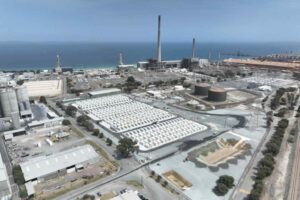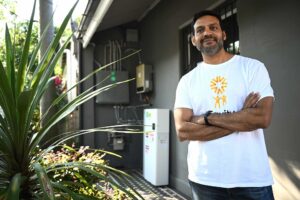The ACT Greens have emerged as the big winners from the ACT election held on Saturday, and are set to deliver an unprecedented fourth term for a Labor-Greens coalition in the national capital, while New Zealand Labor leader Jacinda Ardern has also celebrated a landslide re-election in New Zealand.
The two results are very clear endorsements for two governments that have shown very strong leadership on climate change and clean energy policies, with Labour and Greens parties growing their representation in both the ACT and New Zealand elections held on Saturday.
The results are also a strong affirmation for progressive political parties that have worked together in successful coalitions, and the outcomes of proportional representation that has facilitated the inclusion of smaller parties in parliament and in ministerial roles.
The Labor-Greens government in the ACT has been one of the leading Australian jurisdictions on climate action, which is looking to reduce emissions across the entire ACT economy after a successful switch to 100 per cent renewable electricity, and the Ardern government, in partnership with NZ First and the NZ Greens, have legislated a Zero Carbon Act, and brought forward its own 100 per cent renewable energy goal to 2030.
As of Sunday morning, the ACT’s Labor-Greens alliance is set to be re-elected to a fourth term of co-operative government, with results showing ACT Labor having secured at least ten seats, with the ACT Greens on track to pick up at least one additional seat, with a total of three.
The ACT Greens have emerged as the big winners from the election with results showing that they are on track for a 3.6 per cent positive swing, which appears to be almost entirely at the expense of the Canberra Liberals.
With 13 seats needed to secure a majority, it appears virtually certain that the Canberra Liberals will fall short of their quest to oust the Andrew Barr led government, who have so far secured just eight seats.
There are four seats that remain in doubt, with the possibility that the Greens could secure a further three seats, which would deliver an unprecedented six seats in the ACT Legislative Assembly. The Greens, Labor and Liberals are all battling it out for the remaining seats, which will only be settled after the distribution of preferences under the ACT’s Hare-Clarke system of proportional representation.
The Labor-Greens government has led Australian jurisdictions on climate action, having successfully transitioned all of the ACT onto 100 per cent renewable electricity, a commitment to achieving net zero emissions by 2045, as well as attracting further investment in clean energy and big battery storage within the territory.
ACT Greens leader Shane Rattenbury has served as the ACT’s minister for climate change since 2016 and has continued to push the territory to lead in clean energy investment, reducing emissions and supporting the uptake of zero emissions vehicles.
Further commitments for clean energy investment and responses to climate change will feature within a new parliamentary agreement negotiated between Labor and the Greens as part of a power sharing deal negotiated for the next term of the legislative assembly.
The result will see the ACT Greens retain the balance of power in the ACT, which has retained continuously since 2008 and will ensure the ACT Labor party retains government for sixth consecutive term.
Meanwhile, the Jacinda Ardern led New Zealand Labour party appears set to be re-elected to a second term with an outright majority, after securing a double-digit swing following a strong responses to the Covid-19, the Christchurch shooting and the adoption of ambitious emissions reduction targets.
It will be the first time since 1996 that a party in New Zealand has been in a position to govern with an outright majority.
As of Sunday morning, New Zealand Labor was on track to secure 64 seats, enough to form an outright majority, with the conservative National party reduced to just 35 seats, down from 56.
The New Zealand First party, which had supported Ardern’s prime ministership, and is led by deputy prime minister Winston Peters is likely to be wiped out from the parliament, after its vote collapsed to just 2.66 per cent, below the minimum five per cent threshold to be allocated seats in parliament under New Zealand’s electoral system.
The New Zealand Greens are set to grow their presence in the New Zealand parliament, on track to pick up two additional seats, giving the party a total of ten.
There is a possibility that the strong Labour result may see the NZ Greens ousted from a number of ministerial positions the party held held during the previous term and could include James Shaw, the NZ Greens co-leader, who had served as the minister for climate change since 2017 and who oversaw the development of New Zealand’s Zero Carbon Act.
However, Shaw appeared positive about the ongoing role of the NZ Greens in the New Zealand government, saying that he expected to discuss the ongoing role of the Greens within the Ardern government in coming weeks.
NZ Labour had taken a policy platform into the election which featured ongoing commitments to address climate change and invest in clean energy technologies. The party pledged to introduce a mandate for all new public bus purchases to be all-electric by 2025, to phase out the use of fossil fuels in process heat and will undertake further work to ensure a just transition is provided to communities impacted by the phase out of fossil fuel use.
Queensland will hold its own state election at the end of October, which is also set to be a poll where clean energy and the future of fossil fuels features heavily as Annastacia Palaszczuk faces a tough fight to win a third term as premier.








